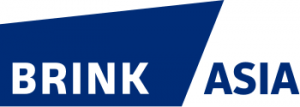The transition to a low carbon economy, US-China tensions, inflation, and hybrid working all feature in our experts’ predictions of 2022.
Source: Tyler Lastovih/Pexels
2021 A survey of BRINK contributors
 On December 26th, we asked a cross section of our experts to name — in a couple of sentences — what had surprised them the most in their business since the pandemic began.
On December 26th, we asked a cross section of our experts to name — in a couple of sentences — what had surprised them the most in their business since the pandemic began.
Today, in the second half of our survey, we asked them to name the challenge or opportunity that they think will rise up the agenda the most in their area of expertise.
Jo Owen, Author of Smart Work: The Ultimate Handbook for Remote and Hybrid Teams
Hybrid working will become the new normal.
Mona Sloane, Sociologist and Senior Research Scientist, New York University
We will see more AI regulation kick in in 2022, and businesses will have to adapt rapidly to new transparency, accountability and audit requirements.
David Dollar, Senior Fellow, Brookings Institution
Rising trade disputes and protectionist policies.
Ellen Ernst Kossek, Basil S. Turner Distinguished Professor Of Management, Purdue University, Krannert School of Management
Implementing flexible working in a way that truly balances employee and employer needs and transforms the workplace from a place to a virtual relationship.
Larissa van der Lugt, Director, Erasmus Center for Urban, Port and Transport Economics
Making progress in the energy transition.
Developing effective, data-driven DEI strategies which will continue to accelerate and come to dominate the HR agenda.
Deborah Gordon, Senior Principal at Rocky Mountain Institute
In 2022, we will need to develop a better understanding of the dynamics of market transitions, especially in an effort to rebuild a net-zero emissions economy. It will be essential to maintain market integration as we shift to low-carbon inputs and outputs — this risk is especially concerning in the refining sector.
John Asafu-Adjaye, Senior Fellow, the African Center for Economic Transformation
The main challenge will be how African economies can recover from the effects of the pandemic and speed up economic growth and create good jobs for the large population of young people. Many countries have had to borrow to supplement the COVID-19 response measures — how can they scale back their debt levels without cutting back on social expenditures?
RM Charan, President of Charan Associates
Inflation, U.S.-China relations, and the U.S. economy.
Sarah Tong, Senior Research Fellow at the East Asian Institute at the National University of Singapore
Uncertainty around the global pandemic and U.S.-China tensions are two of the most serious challenges to the world economy.
Alicia Garcia Herrero, Senior Research Fellow, Bruegel
Taiwan becoming the central focus of U.S.-China strategic competition.
Richard Wilding, Professor Of Supply Chain Strategy, Cranfield University U.K.
Increasing agility and planning for on-shoring, nearshoring and multi-shoring to increase supply chain resilience.
Ben Hoster, Director, Transformative Technologies, Marsh McLennan Advantage
Technology convergence, “smart” devices and applications, with related cyber threats and digital risks, and some day, the Metaverse.
Bart W. Edes, Distinguished Fellow at the Asia Pacific Foundation of Canada
Containing COVID-19 to enable the launch of a sustainable, inclusive global recovery.
John West, Executive Director, Asian Century Institute
Growing global political instability in light of [President] Biden’s weakness and unpopularity at home, [President] Xi’s anxiousness to have his term as China’s leader extended, [President] Xi’s impatience for Taiwan to be unified with mainland China, and strategic drift in Europe with the departure of [former Chancellor] Merkel and the French elections.
Alexander Privitera, Head of European Affairs at Commerzbank AG
Calibrating fiscal and monetary policies.
Blair Chalmers, Director, Marsh McLennan Advantage
The adaptation and resilience of infrastructure assets.
Marcus Courage, CEO at Africa Practice
Regulation/regulatory compliance. A wave of new regulations to address tax compliance, health, digital/data and environment.
Anbumozhi Venkatachalam, Director, Research Strategy and Innovations at the Economic Research Institute for ASEAN and East Asia
Destructive innovation and financing sustainability.
Haig Nalbantian, Senior Partner, Mercer
Developing effective, data-driven DEI strategies which will continue to accelerate and come to dominate the HR agenda.
Jason Clay, SVP Markets, ED Markets Institute, WWF
The need for common metrics, methodologies and boundaries to make meaningful change. Absolute reductions of all climate impacts.
VADM (Ret.) John Miller, CEO, The Fozzie Miller Group
2022 will be a year of continued challenges — especially regarding Chinese and Russian aggression. The most pressing issue will be responding in Ukraine, should Russia decide to invade. We can expect China to further pressurize Taiwan as they continue to move toward an unwanted re-unification.
Kavitha Hariharan, Director, Healthy Societies, Marsh McLennan Advantage
Workforce burnout will exacerbate delivery challenges in health care, in a context of swelling demand caused by new SARS-Cov-2 variants and Long COVID, care that has been deferred during the pandemic, and other health crises such as those caused by increasingly severe extreme weather events.
The original article can be viewed at the Brink’s website HERE.


Leave a Reply